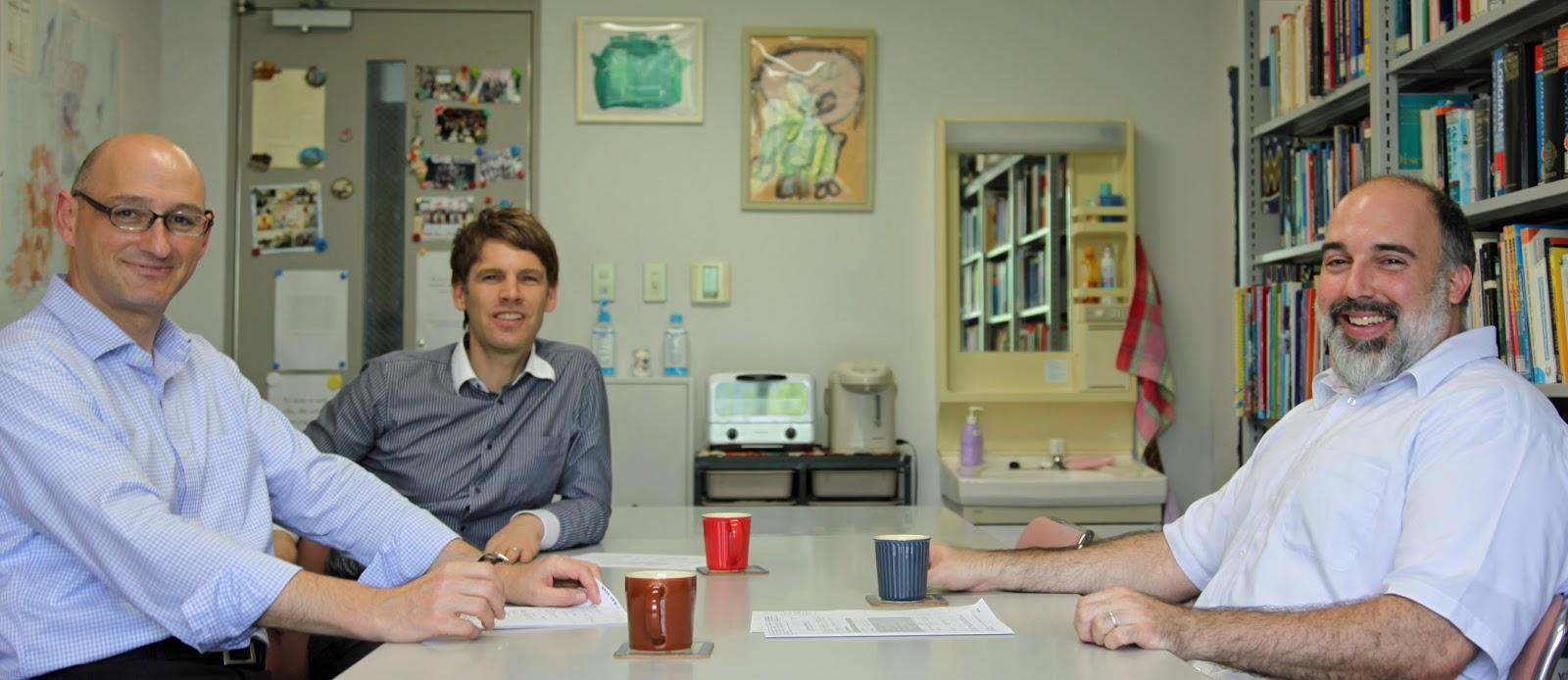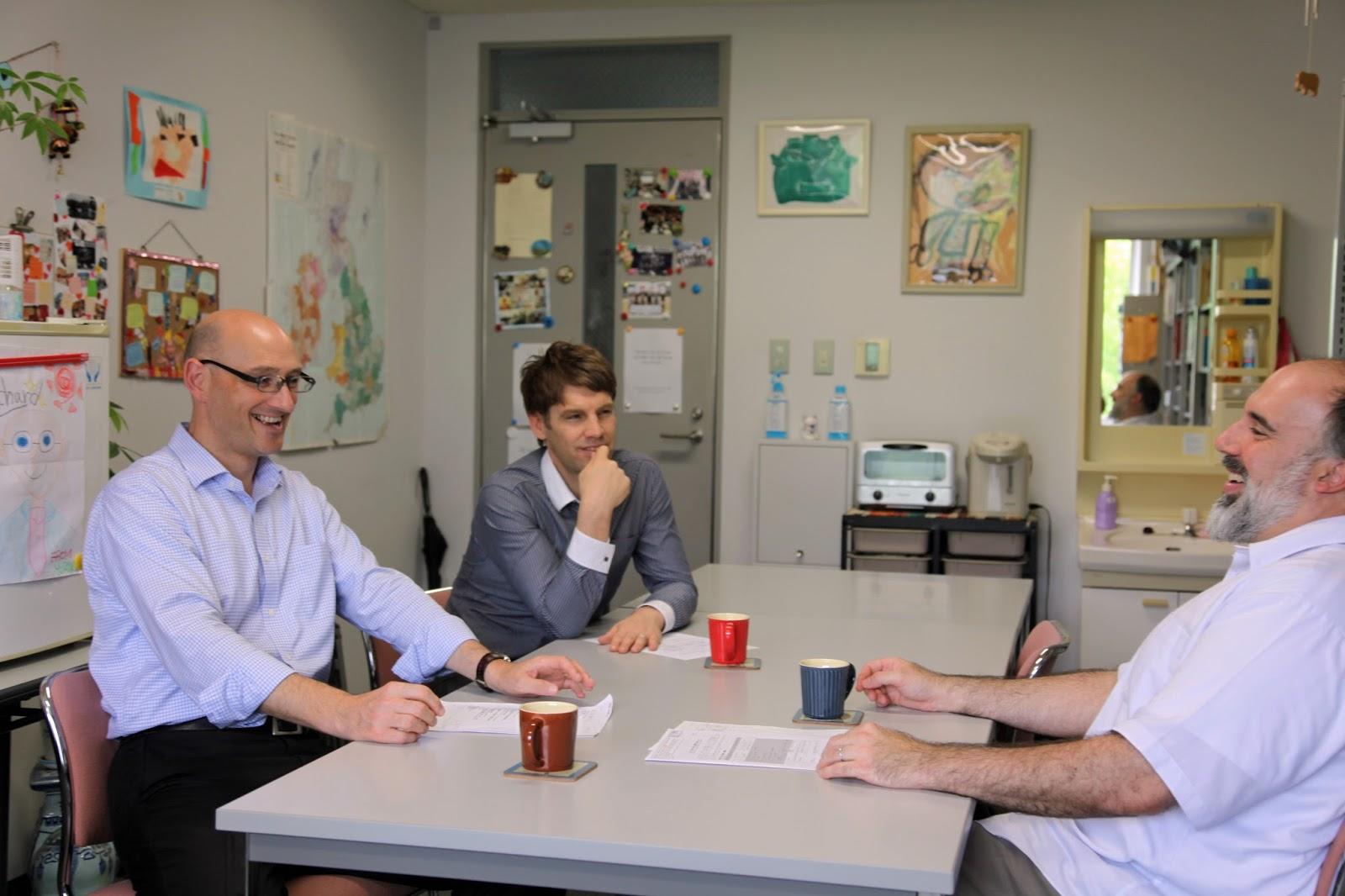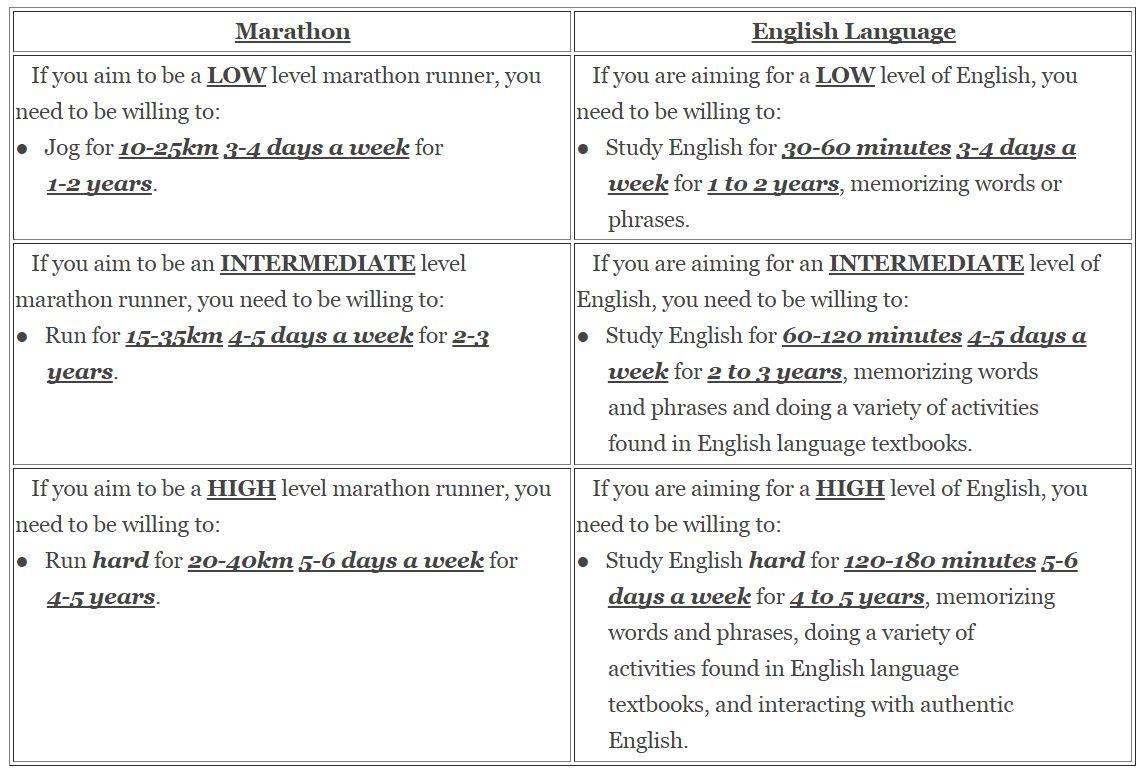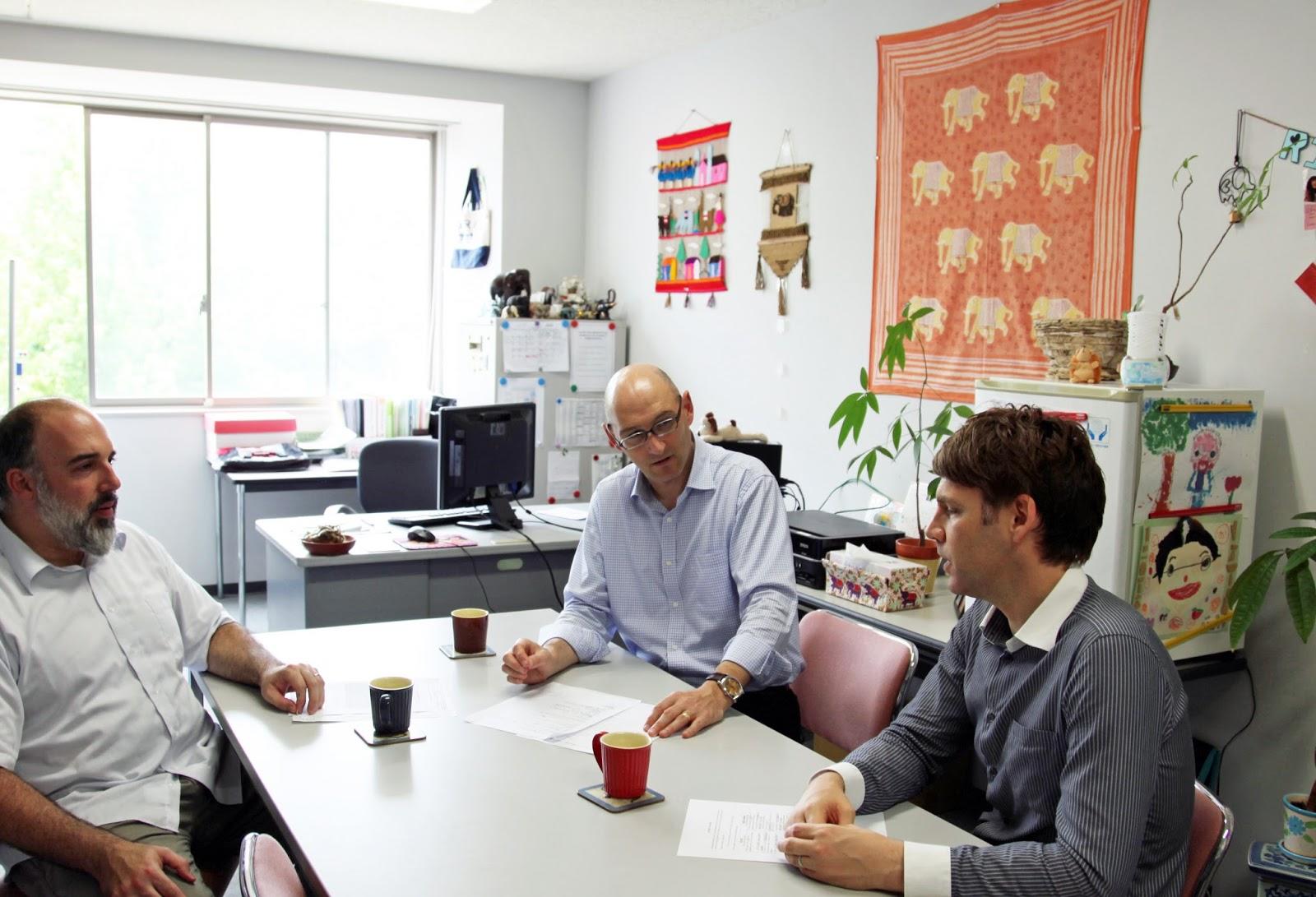英語英米文学科には、Richard Gabbrielli先生、Taras.A.Sak先生、John McLean先生の3人の英語のネイティブスピーカーの先生方がいらっしゃいます。
今後、シリーズで、3人の先生方に、様々な観点から語っていただく予定です。
今回は、「英語学習へのアドバイス」です。ぜひ参考にして、本物の英語力をつけてください。

(写真:左から、Richard Gabbrielli先生、John McLean先生、Taras.A.Sak先生です)
Advice to students studying English
Learning a foreign language is like learning to swim - you need to keep practicing! When learning, you also need an objective and a very positive attitude. In addition, you need to enjoy what you are doing!
Students often ask me what the best way to learn English is. To be honest, there is no single way that can help everyone. It is important to find a way that suits you, that reflects who you are, your interests and your beliefs. Some students like reading graded readers (レベル別英語リーダー), listening to English songs (and writing out the words), or watching movies in English (and practicing the pronunciation). Other students prefer to keep a diary, writing a little bit every day in English about school life and personal issues. Some students communicate with friends in English using social media.
The important thing is to find a way that stimulates you and makes you want to learn. Nobody can force you to learn - you must do that yourself! There is no magic way to help you do this! As teachers, we are here to help you, guide you, and support you in any way we can on your learning path, but you must be responsible for your own learning! If you have a good idea about what you want to do in the future, planning your studies in English and choosing suitable courses to achieve your objective is a very smart and sensible approach.
If you want to improve your speaking skills, using English in class as much as possible will certainly help you. Going to the 英語カフェー will also give you extra opportunities to use English and develop confidence.
Finally, try not to compare yourself to others. Nobody speaks a foreign language perfectly, and everyone has their strengths and weaknesses. Think about what YOU can do, how you can use the English YOU have, and think carefully about what YOU can do to improve YOUR skills. Lastly, and most importantly, don't forget to enjoy learning!
(Richard Gabbrielli)
Being a good language learner requires motivation, passion, and dedication. The students I see who make the most progress with their English are almost always the ones who have a definite goal (like passing Eiken pre-1), who speak English as much as possible, and who study or review each and every day. If you think you will learn English by simply sitting in the classroom or watching TV shows in English, then you will be disappointed. Listening to others in class is important, and watching TV shows can be a great way to improve not only your listening skill but also your cultural awareness; however, in order to make the most progress you must become an "active learner." I usually advise students to keep a vocabulary notebook, for example, and write down each new word they encounter in their classes or daily life. Then, write a simple English definition for each word, followed by the Japanese meaning. Finally, you should try to use the new word, phrase or idiom in a sentence. There are also free applications that you can use with a PC or a smartphone, such as "Quizlet," with which you can make electronic "flashcards" and play games in order to memorize and internalize those words. But that is just one idea--there are of course many other ways to actively study English. I would just like to emphasize that students find their passion and try to explore that using English. If you like fashion, why not try reading about fashion in English? If you like music, then try listening to, perhaps even singing, English songs. Whatever you choose, if you really love learning about it, then actively using English won't seem like "studying"--it will be fun and rewarding!
(Taras.A.Sak)

Aim High, Train High
Michelangelo famously said, "The greater danger for most of us lies not in setting our aim too high and falling short; but in setting our aim too low, and achieving our mark."
I agree. However, I would add:
● Aiming for a high level goes hand in hand with training to a high level.
Let me explain what I mean using a simple analogy:

Many unsuccessful foreign language learners aim high but train low. Anyone who wants to pursue a career using a foreign language needs to be willing to aim high and train high.
Question: What does it mean to study hard, memorizing words and phrases, doing a variety of activities found in English language textbooks, and interacting with authentic English?
Answer: Join me at Yasuda's open campus on 18th July to find out; I'll show you some fun activities to get you started!
(John McLean)






